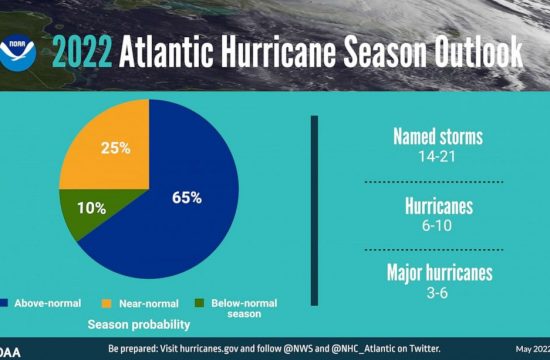After a turbulent year that exacerbated and highlighted long-standing structural issues across the United States, the National Urban League, a civil rights advocacy organization, said in its annual “State of Black America” report released Thursday that COVID-19 has worsened racial issues in the country.
In partnership with the Brookings Institution, Johns Hopkins Center for Health Equity and Center for Policing Equity, the report analyzed the devastation in Black communities in the wake of the COVID-19 pandemic.
“Structural racism is not new to many of us. For centuries and even today, Black lives continue to be subject to laws, policies and practices that have created and sustained systematic oppression that impacts every facet of our lives,” Tracie Keesee, co-founder and senior vice president of social justice initiatives at the Center for Policing Equity, said at a virtual event Thursday discussing the release of the report.
The report highlighted three main issues in the Black community right now, including economic injustice, racism in policing and health care inequality.
COVID-19 has proven flaws in the U.S. health care system, the report asserts. Black and brown victims are disproportionately dying from the virus, compared to other white populations, according to data from the Centers for Disease Control and Prevention. Black individuals are two times more likely to die from COVID-19 than people who are white, and Hispanics are 2.3 times more likely to die, according to CDC data.
And even though the percentage of Black and white people who are vaccine hesitant or refusing to get the vaccine are roughly the same, vaccinate rates are much lower among Black populations. The report states that disparities in COVID-19 vaccination rates indicate inequities in vaccine distribution and access for Black populations.
The group’s research also found that Black people are more likely than whites to live more than 10 miles from a vaccine facility.
Poor access to health care is just one result of structural racism, the report states. Economic inequality is another, which was also worsened by COVID-19.
The typical African American household had less than 15% of the median wealth of a typical white household, and Black workers face significant pay gaps in the workforce, according to data from the Federal Reserve Bank.
And during the COVID-19 pandemic, almost 17% of Black households lacked basic financial services, compared to only 3% of white households, according to the Brookings Institution.
Experts at the National Urban League said the existing inequalities can be fixed by closing the racial wealth gap, reparations and more.
“We need to look at wage suppression, and wage in equity as a racial issue in and of itself,” Jennifer Jones Austin, the CEO and executive director of the Federation of Protestant Welfare Agencies, said Thursday on the panel discussing the report. “Why can’t we increase wages at the federal level? It is because this nation has determined that there will always be an underclass. And disproportionately that underclass represents Black and brown Americans.”
Police brutality and violence have also been a consequence of structural racism, according to the report.
Even as the racial reckoning took over the country following the death of George Floyd, killings of Black people at the hands of police continued, including Daunte Wright, Ma’Khia Bryant and others.
Black people are not only more likely to be killed by police, but according to the Center for Policing Equity, Black people were also about 6.5 times more likely to be stopped while driving and 20 times more likely to be searched than their white counterparts.
To solve this, the National Urban League recommended reenvisioning public safety and what its structure and function in communities looks like.
The organization also recommended holding officers accountable for misconduct, changing divisive policing policies, requiring transparency, reporting and data collection and improving training standards.
Not much has improved since last year’s “State of Black America” report, experts on the panel said, but with the data and knowledge that has been gathered this year on structural racism and how it impacts people of color, some community leaders have hope.
“Dismantling structural racism — identifying and repairing the cracks in our national foundation — will result in more resilient and dynamic institutions that expand opportunity for everyone,” Marc Morial, president and CEO of the National Urban League, said in the report. “As the pandemic becomes more of a memory, we are challenged to keep the same energy and finish what we started.”











